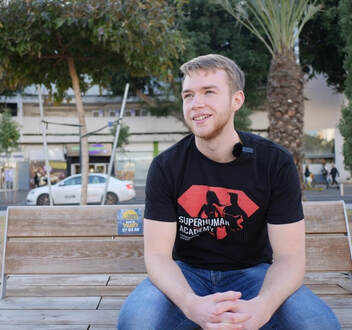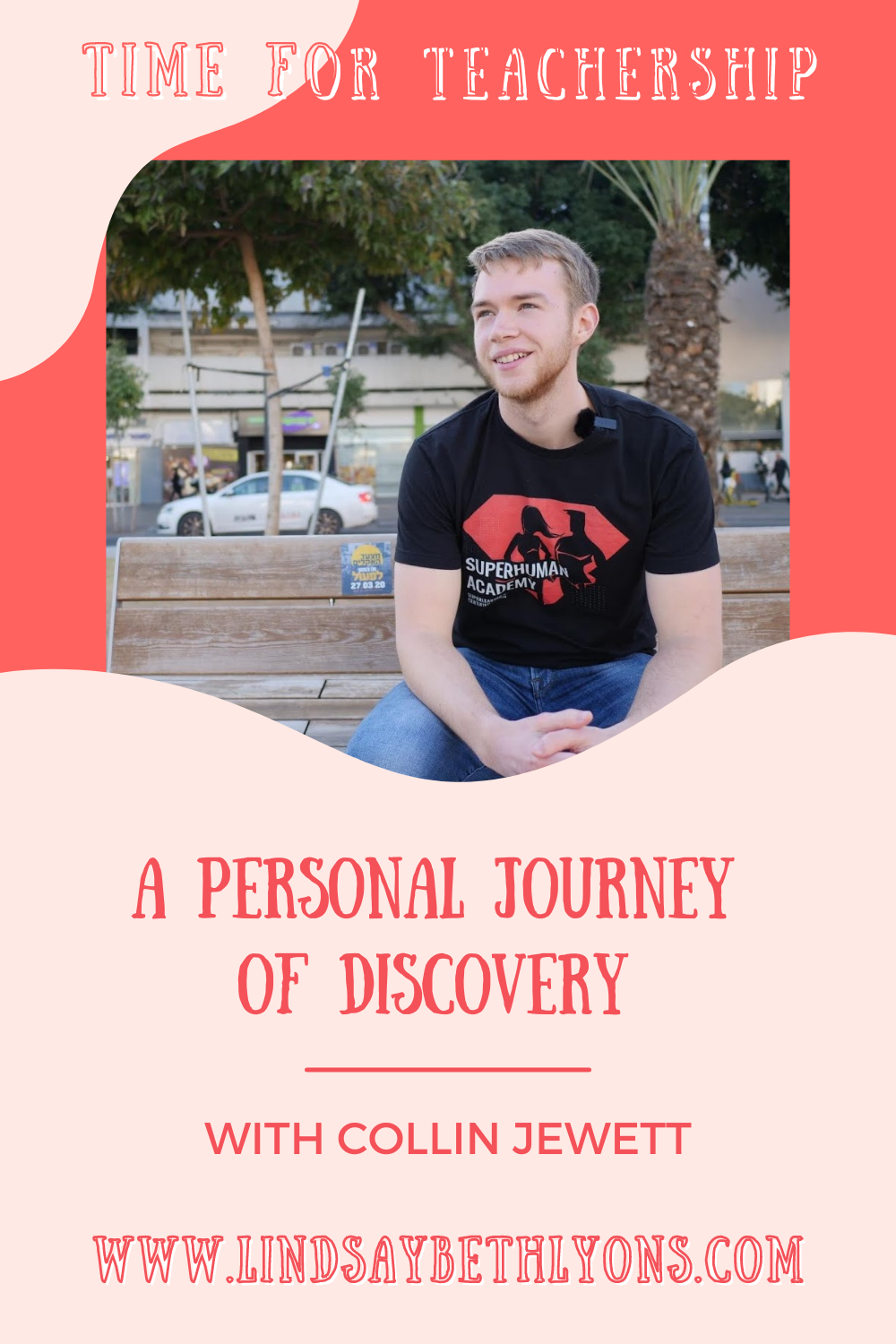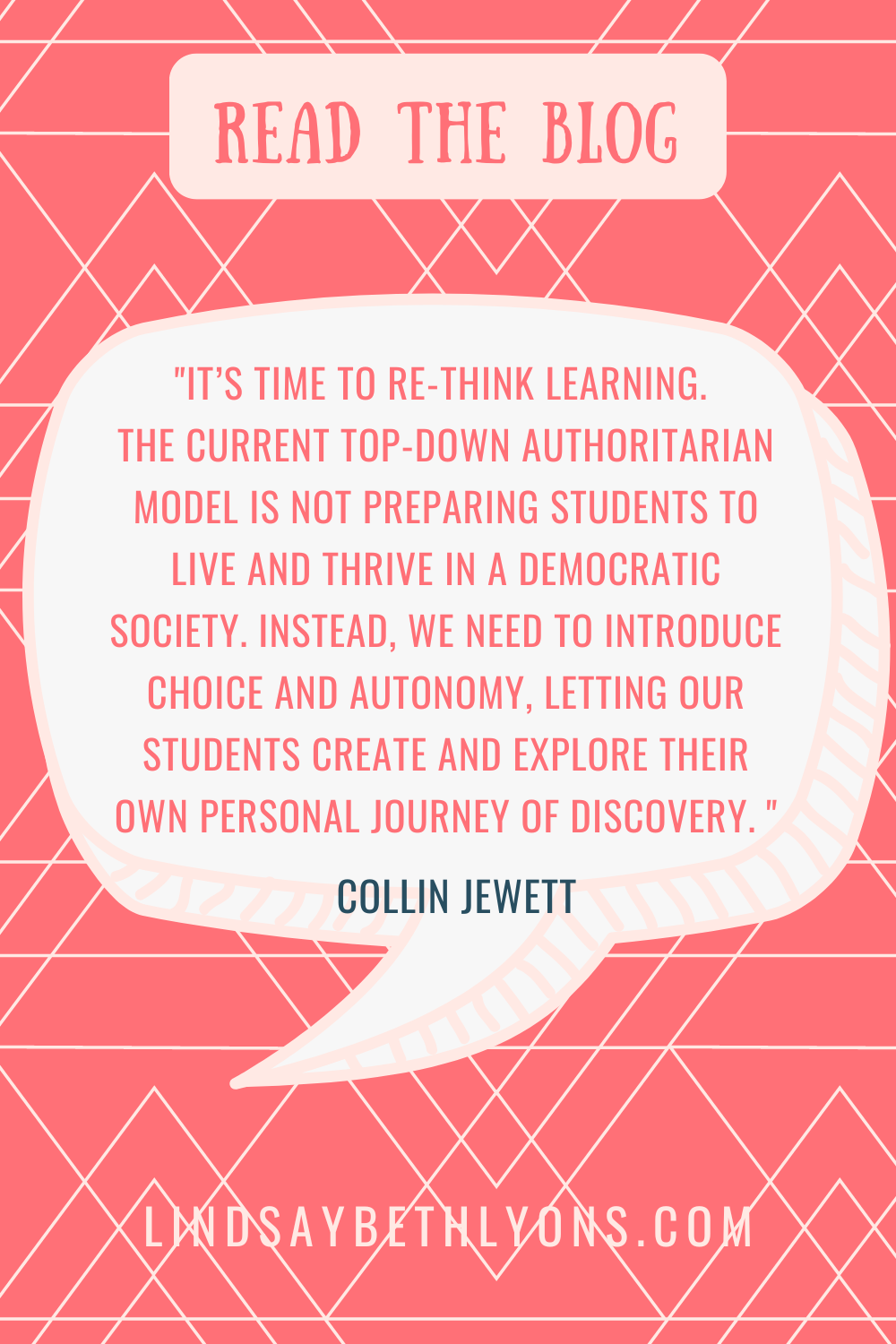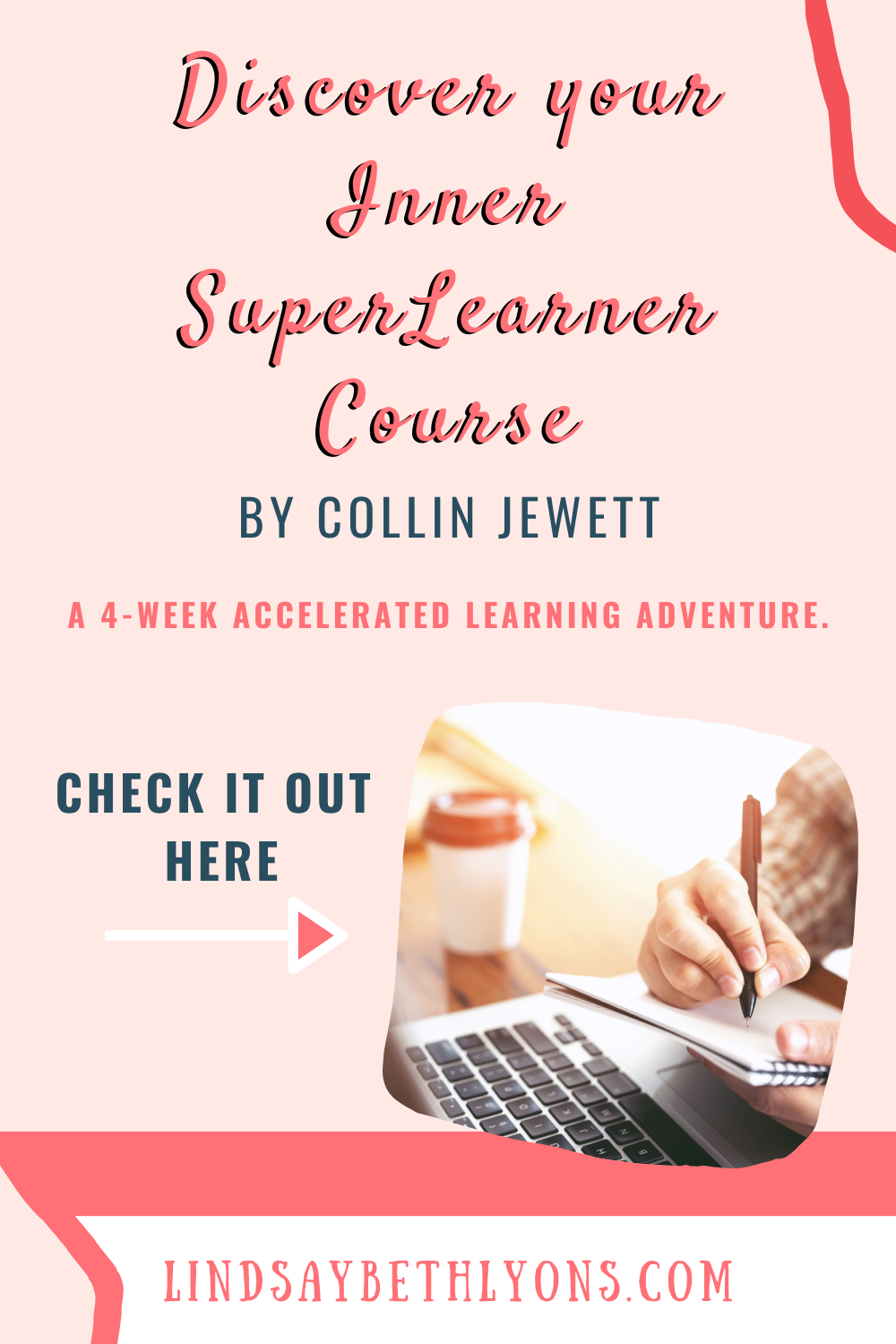
Listen to the episode by clicking the link to your preferred podcast platform below:
Ask someone what the purpose of school and the educational system is, and they’ll say: to help students learn and prepare them for the future. But what kind of future are we preparing them for? Ideally to live as happy, healthy, whole members of a democratic society. Does the current education system really do that? Collin Jewett was a recent guest on the Time for Teachership podcast. From his perspective as an accelerated learning and memory coach, schools are authoritarian in structure and operate on top-down decision-making. Is that the best way to prepare them to live in a democratic society? From radical systemic overhaul to practical next steps, Collin shared his ideas on how we can get back to what learning is all about: helping students find their own personal journey of discovery. The Purpose of Education The education system as it currently exists is a product of the industrial system. As Collin described, our society needs people to fill certain roles and education helps shape them into that. The result of this is the commodification of students and learning, focused on outcomes and specific data points. But we know that the education system is broken and not serving all students. So, it’s time to think critically and ask some questions:
Learning as a Personal Journey of Discovery Collin defines learning as a personal journey of discovery. To make this a reality, we need to democratize education. Students need more say than they have on the student leadership committee, just making decisions about prom or other events. For them to learn they need to go on a personal journey, which requires a choice and autonomy. An example of this in practice is Sudbury Valley School, where Collin has visited and researched. They have a radical—though we can question if it should be deemed such!—model of learning that includes democratic decision making, no formalized classrooms, and complete freedom for students to do what they want. And here’s the thing--it works. Follow up studies on Sudbury Valley’s graduates show that they’ve gone on to ivy league schools, successful jobs, and entrepreneurship. Practical Steps for Educators Until there is a massive systemic overhaul, we need think about the practical next step. What can we do in our classrooms to encourage learning as a personal journey of discovery? Collin had a few ideas:
It’s time to re-think learning. The current top-down authoritarian model is not preparing students to live and thrive in a democratic society. Instead, we need to introduce choice and autonomy, letting our students create and explore their own personal journey of discovery. If you want to keep up with Collin, check out his course, Discover Your Inner SuperLearner. Also make sure to catch his full interview, along with other amazing guests, on the Time for Teachership podcast.
0 Comments
Leave a Reply. |
Details
For transcripts of episodes (and the option to search for terms in transcripts), click here!
Time for Teachership is now a proud member of the...AuthorLindsay Lyons (she/her) is an educational justice coach who works with teachers and school leaders to inspire educational innovation for racial and gender justice, design curricula grounded in student voice, and build capacity for shared leadership. Lindsay taught in NYC public schools, holds a PhD in Leadership and Change, and is the founder of the educational blog and podcast, Time for Teachership. Archives
May 2024
Categories |




 RSS Feed
RSS Feed